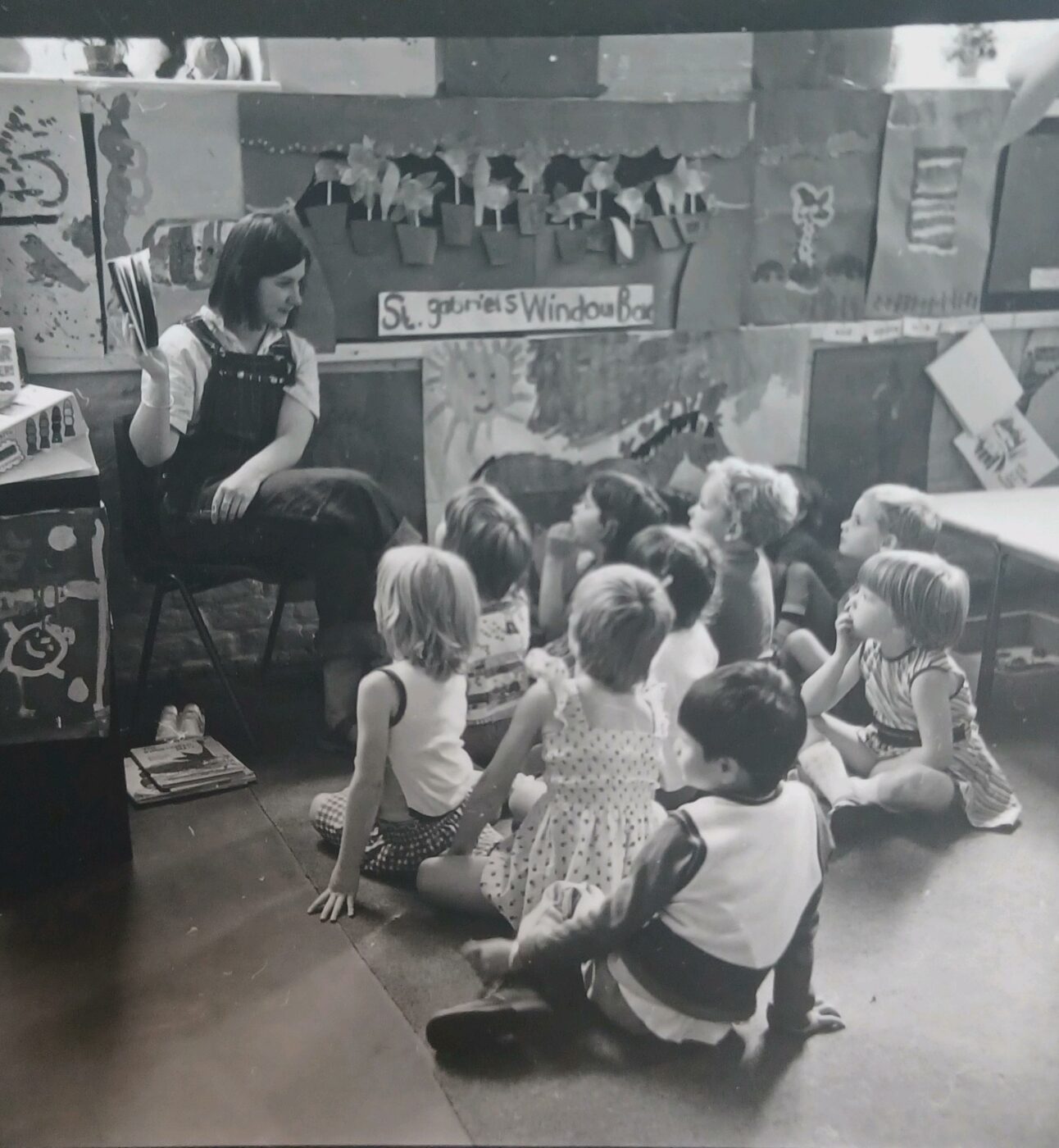
Talking Early Years: Celebrating 120 Years at LEYF
The Year That is 2023 – This year, we are proud to celebrate 120 years of LEYF. It’s been fascinating to reflect back on what has changed over…
June 13th 2011
I have just come back from a two day NDNA conference in Leeds, accompanied by two of our nursery officers – Audrey Grant from Lisson Green and Wendy Buckingham from Ford Road (and very good company they were too).
As you may have spotted from our comments recently in Nursery World, at LEYF we believe that attending and presenting at key conferences not only helps boost the organisation’s reputation, but is also and more importantly critical to personal development.
This particular conference presented many opportunities to extend thinking about our own practice, and Wendy and Audrey were both quick to analyse the value of the new ideas put forward and have gone off with some of that data to test in their own settings.
The conference was opened with a rousing overview from Purnima Tanuku, CEO of the NDNA, who set a positive and upbeat vibe for the day. She reminded us that the sector is not small beer, that we should be confident about the clout we have to create and sustain employment, as well as providing the means to enable parents to work and contribute to the economy. Purnima also showered us with facts which told an interesting story. For example, did you know there are:
Of course, we are struggling with the economic downturn and some businesses have gone out of operation, yet generally the stronger more capable businesses are surviving. It is a slow growth period, but it’s flat lining rather than plummeting.
Interestingly, later in the day Philip Blackburn from Laing and Buisson described the nursery market as mature, with much more emphasis being placed on developing quality and service innovation.
The age old problem of the cost of the universal offer was highlighted, and Purnima revealed some big differences in the Nursery Education Grant across the country – varying from between £2.04 to £3.99, with very few local authorities funding the actual cost through their hourly rate. This looks unlikely to be resolved and will continue to take all our business and leadership creativity to balance the books while running a flexible offer.
Sarah Teather, our Minister, joined us to give a confident speech, subsequently endearing herself to the audience by staying to answer some difficult questions honestly and comprehensively. She reaffirmed the aim of the government was to close the attainment gap in children from poor backgrounds, something she felt could happen with the support of our very diverse sector.
As ever, she asked us for our input; but asked in the right way and we will always rise to the request. In this case, our feedback is now sought on a number of reviews, including Tickell’s recommendations, Ofsted, the Code of Practice and the workforce. So that is one weekend of survey monkey to look forward to!
She acknowledged that much of our frustration comes from the interpretation of the many regulations we face; apparently Local Authorities have 200 pages of guidance, so little wonder there are concerns around interpretation. Let’s help get the guidance on one page. We are trying to do that with our HR policies at LEYF, and if we can do it, the Government certainly can.
Sarah Teather clarified that access to free places must be free. Parents must not be expected to pay for extras or lunch in order to access the free offer. The chair, Rosemary Bennett, Social Affairs Correspondent at The Times, got a great guffaw from the audience when she asked
…Minister, do you not think it’s your job to ring up local authorities and tell them to pay a fair rate?”
The Minister also picked up the audiences concern that the new Level 3 CYPW Diploma was weak and would not ensure quality, especially as it lacks any real child development input, no units on play and can be completed in 2 long assessments with limited literacy assessment. This puts the heart crossways for many employers, especially those of us training 16 to 19 year olds. Our minister at least had the decency to accept our concerns and said she would review it.
We need to think about qualifications and whether they are fit for purpose.”
The following day we were patronised by the head of the CWDC, who more or less told us to get stuffed, saying the CWDC had consulted with employers and we had agreed to this. Having recently spoken with all the big employers, along with a colleague representing employers on the CWDC working group attending the conference, we were collectively stunned by such an assertion, as none of us have been approached by the CWDC on any matter, let alone the Diploma.
Audrey and Wendy certainly liked the presentation by Catherine Prisk, Director of Play England, who made an impassioned plea to encourage risky play. I laughed given I had blogged about this last week. She pressed her point by asking the audience to remember our best play experience. She then asked whether it was inside or outside…naturally everyone put their hands up for outside. She then went in for the kill, asking us whether we were with friends or adults. Yes, of course, it was without an adult. Who would want one of them around to spoil the fun; a point also made by a child she quoted who described play as
Play is what I do when you stop telling me what to do.”
Spare a thought then for our children, who not only go to school far too early, but come home to spend far too much time with Super Mario and Sonic the Hedgehog as companions. Our challenge is to create an environment where they have the opportunities to test themselves, to feel fear, to find solutions and to gain mastery. We had a presentation from Sandfield Natural Play Centre in Liverpool which has built in risky play into their curriculum. We were delighted by photos of her forest school approach. It inspired the following quote from Wendy, who is going to build a fire pit in Ford Road whilst I cut the ribbon and celebrate over a toasted marshmallow.
Risky Play Rocks; stepping out on a rocky road adventure together, we have the potential to move beyond scaredy cats to confident and creative staff and children. Rock on!
Wendy Buckingham, Ford Road Children’s Centre Nursery
Catherine Prisk reminded those afraid of risky play to read two books to give them greater confidence:
After a tasty lunch (what is it about conferences, we sit all day and are constantly hungry?), we were regaled with a presentation on attachment by Robin Balbernie, who shocked us all by saying 55% adults and 60% of children had poor attachment. He reminded us that attachment is a child’s biological response to fear and danger and actually sculpts our brain; a fact not lost on our CRLD team which is keen to roll out and develop their Brain Development CPD programme.
Robin continued by emphasising the crucial role of adults who care for babies, since the damage from poor attachment is done by the end of their first year. So shout out for all our staff who work with babies! It certainly got Audrey thinking about how we can do more at LEYF. We also need to improve our assessment of attachment, especially as we are about to increase our offer to two year olds in line with Government policy; we need to figure out better ways of assessing attachment, and supporting staff and parents to respond to children in a way that helps ensure the child’s forms secure attachments. Apparently, assessing at collection time is the better time to weigh up the child’s state of attachment, as the reunion following the separation is the place where you can better gauge the quality of attachment.
Neil Griffiths of Storysack fame ended the day with a stirring call for us to read books to children, so they will be inspired to read for pleasure. He advised those reading stories just before lunch using a dying wasp voice with the face like a slug’s bottom need to leave and go and work elsewhere. He read us the story of the little mouse, the ripe red strawberry and the big hungry bear until tears of laughter ran down our faces. How I wished the whole of LEYF were there to experience it. Maybe they will some day soon.
Audrey summed it up when she said she would encourage staff to…
“…hold the book as if it were your most treasured possession, and use everything at your disposal – including your vocal acrobatics – to engage children so the story becomes part of their memories.”

The Year That is 2023 – This year, we are proud to celebrate 120 years of LEYF. It’s been fascinating to reflect back on what has changed over…

The other night I was watching my new late-night Netflix addiction, How to Get Away With Murder. I have reached Series 5 where the main protagonist, Annaliese Keating is…

We all know that the Tiger comes to Tea but we have never had a Duchess come to Breakfast. https://www.youtube.com/watch?v=-6hzbLzcprE The Duchess of Cambridge lightened up our…